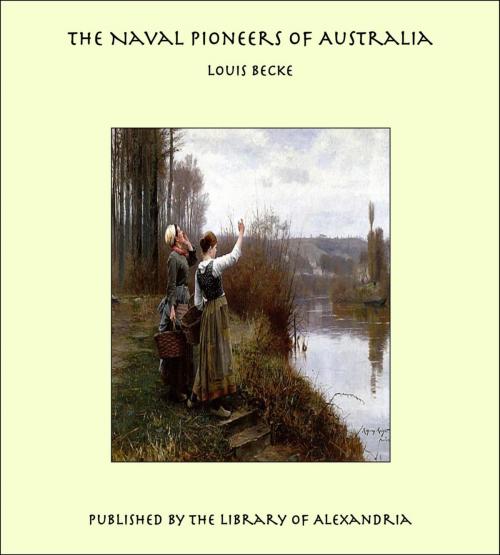The Naval Pioneers of Australia
Nonfiction, Religion & Spirituality, New Age, History, Fiction & Literature| Author: | Louis Becke | ISBN: | 9781465551979 |
| Publisher: | Library of Alexandria | Publication: | March 8, 2015 |
| Imprint: | Language: | English |
| Author: | Louis Becke |
| ISBN: | 9781465551979 |
| Publisher: | Library of Alexandria |
| Publication: | March 8, 2015 |
| Imprint: | |
| Language: | English |
This book does not pretend to be a history of Australia; it merely gathers into one volume that which has hitherto been dispersed through many. Our story ends where Australian history, as it is generally written, begins; but the work of the forgotten naval pioneers of the country made that beginning possible. Four sea-captains in succession had charge of the penal settlement of New South Wales, and these four men, in laying the foundation of Australia, surmounted greater difficulties than have ever been encountered elsewhere in the history of British colonization. Under them, and by their personal exertions, it was made possible to live upon the land; it was made easy to sail upon the Austral seas. After them came military and civil governors and constitutional government, finding all things ready to build a Greater Britain. Histories there are in plenty, of so many hundred pages, devoted to describing the "blessings of constitutional government," of the stoppage of transportation, of the discovery of gold, and all the other milestones on the road to nationhood; but there is given in them no room to describe the work of the sailors?a chapter or two is the most historians afford the naval pioneers. The printing by the New South Wales Government of the Historical Records of New South Wales has given bookmakers access to much valuable material (dispatches chiefly) hitherto unavailable; and to the volumes of these Records, to the contemporary historians of "The First Fleet" of Captain Phillip, to the many South Sea "voyages," and other works acknowledged in the text, these writers are indebted. Their endeavour has been to collect together the scattered material that was worth collecting relating to what might be called the naval period of Australia. This involved some years' study and the reading of scores of books, and we mention the fact in extenuation of such faults of commission and omission as may be discerned in the work by the careful student of Australian history. The authors are very sensible of their obligations to Mr. Emery Walker, not only for the time and trouble which he has bestowed upon the finding of illustrations, but also for many valuable suggestions in connection with the volume. WALTER JEFFERY
This book does not pretend to be a history of Australia; it merely gathers into one volume that which has hitherto been dispersed through many. Our story ends where Australian history, as it is generally written, begins; but the work of the forgotten naval pioneers of the country made that beginning possible. Four sea-captains in succession had charge of the penal settlement of New South Wales, and these four men, in laying the foundation of Australia, surmounted greater difficulties than have ever been encountered elsewhere in the history of British colonization. Under them, and by their personal exertions, it was made possible to live upon the land; it was made easy to sail upon the Austral seas. After them came military and civil governors and constitutional government, finding all things ready to build a Greater Britain. Histories there are in plenty, of so many hundred pages, devoted to describing the "blessings of constitutional government," of the stoppage of transportation, of the discovery of gold, and all the other milestones on the road to nationhood; but there is given in them no room to describe the work of the sailors?a chapter or two is the most historians afford the naval pioneers. The printing by the New South Wales Government of the Historical Records of New South Wales has given bookmakers access to much valuable material (dispatches chiefly) hitherto unavailable; and to the volumes of these Records, to the contemporary historians of "The First Fleet" of Captain Phillip, to the many South Sea "voyages," and other works acknowledged in the text, these writers are indebted. Their endeavour has been to collect together the scattered material that was worth collecting relating to what might be called the naval period of Australia. This involved some years' study and the reading of scores of books, and we mention the fact in extenuation of such faults of commission and omission as may be discerned in the work by the careful student of Australian history. The authors are very sensible of their obligations to Mr. Emery Walker, not only for the time and trouble which he has bestowed upon the finding of illustrations, but also for many valuable suggestions in connection with the volume. WALTER JEFFERY















